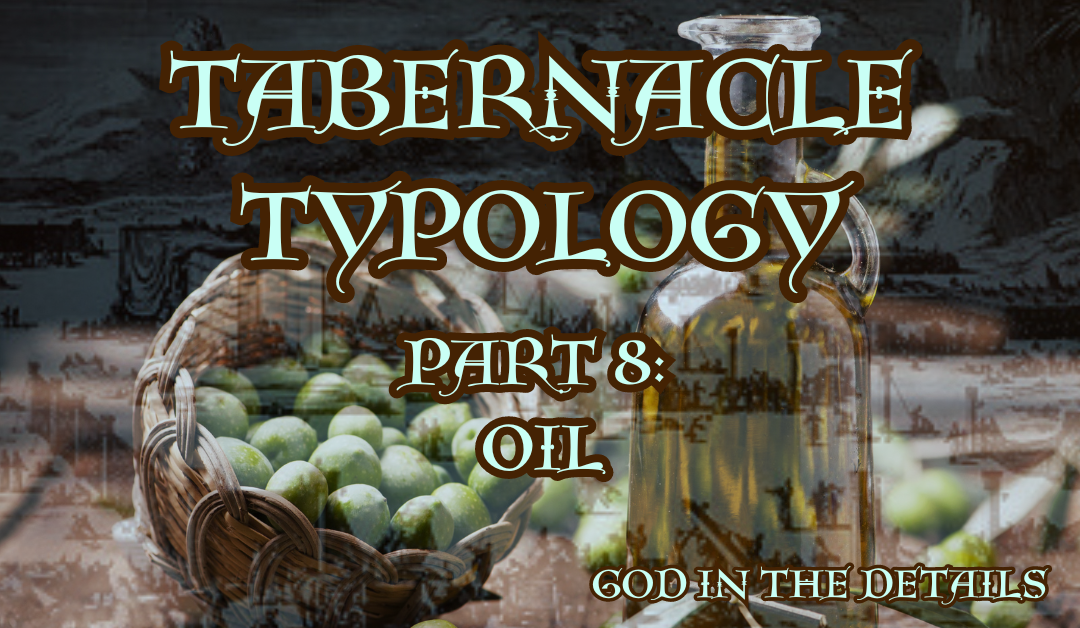Ex. 27:20-21: (KJV)
“And thou shalt command the children of Israel, that they bring thee pure oil olive beaten for the light, to cause the lamp to burn always. In the tabernacle of the congregation without the vail, which is before the testimony, Aaron and his sons shall order it from evening to morning before the Lord: it shall be a statute for ever unto their generations on the behalf of the children of Israel.”
The Lord commanded the people of Israel to bring pure, cold-pressed olive oil for the lamps and for the anointing oil (Exodus 30).
To get the oil out of the fruit of the olive tree, the olives were either crushed with a mortar and pestle, or by being trodden with their feet.
The word used here for ‘beaten’ in the Hebrew is ‘Katith’ – which most properly translates as ‘to break into pieces’.
The Encyclopedia Judaicia has the following insights to offer: “The olives were beaten down from the trees with poles (Isa.17:6), and were pounded into pulp in mortars or by the feet (Micah 6:15). The pulp was placed in wicker baskets from which the lightest and finest oil could easily run off This grade of oil, known as beaten oil (Heb. Shenen katit), is mentioned five times in the Bible. It served as fuel for the lamp in the Tabernacle (Exo.27:20; Lev.24:2) and as an element in the obligatory daily meal offerings (Exo.29:40; Num.28:5).”
They used only the finest oil for the lamps. This valuable and labor intensive product was used to keep the lamp burning in the Tabernacle – day and night, night and day – the light never went out.
This meant that the production of oil by the Israelites was an always ongoing process and daily sacrifice.
In the Old Testament, the earliest reference to the olive tree is found in the Noah’s Ark narrative.
Here it represents peace, hope and restoration.
The process through which the oil was procured signifies the sacrifice of Christ – who was bruised – and broken into pieces (‘katith’) for our transgressions. His suffering was the chastisement for our peace.
David speaks about the ‘oil of gladness’ (Psalm 45:7). It is through the beaten oil of Christ that we have much to rejoice about.
The Oil is also representative of the Divinity of Jesus. The fullness of the Godhood within Him – He is the Light of the World stepping down into darkness to illuminate the Way for us – the Way to life.
The oil itself – both in the lamp and the anointing oil – is typical of the Holy Spirit – God within us.
When we turn to Christ as our Lord and Saviour we receive His Spirit – the fire of His presence burning in our hearts.
Much like Aaron and his sons we then have the duty to keep this fire burning through prayer, Bible study and obedience to the Lord and His ways.
Reflect:
1. The production of the oil was a daily sacrifice of time and effort, as was the burning of the lamps. What daily activities should we pursue to keep our lamps burning? What daily sacrifices must we make to make sure there is oil in our spiritual lives?
2. If we make a diligent effort to keep our lamps burning, what will the result be? How does a life full of oil look?
Prayer: Lord, give me oil in my lamp. Keep me burning day and night. Let me be a light to the world around me. Let others see this light and draw near out of the darkness – let them find You Lord. Anoint my lips to speak Your truth. Anoint my hands to pray for people and do good works. In Jesus Name. Amen.

